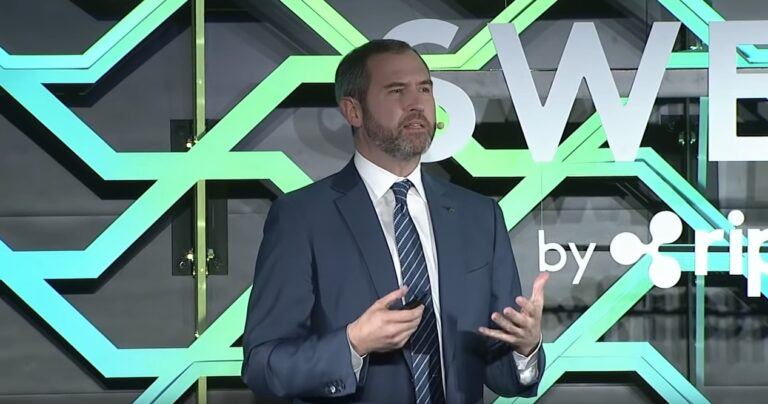Ripple CEO Brad Garlinghouse has once again taken aim at the U.S. Securities and Exchange Commission (SEC), asserting that the regulator is destined to fail in its attempts to classify Ethereum (ETH) as a security, just as it did with Ripple’s XRP token. Garlinghouse’s comments come on the heels of a heated debate sparked by Coinbase’s Chief Legal Officer, Paul Grewal, who recently challenged the SEC’s potential move to redefine Ethereum’s status.
In a lengthy thread on social media platform X, Grewal refuted the implication that Ethereum’s status is in question, highlighting the SEC’s apparent contradictions and the asset’s long-standing recognition as a commodity by various regulatory bodies and courts. Grewal accused the SEC of attempting to invent a flimsy justification for denying spot Ethereum ETF applications, emphasizing the need for regulatory clarity for U.S. investors.
Responding to Grewal’s thread, Garlinghouse pulled no punches, writing: “The SEC picked fights with the industry and is losing badly in the Courts. They’re now fighting fellow regulators like the CFTC, and falling behind international counterparts. At what point will the SEC realize they will lose the war against ETH just as they lost against XRP?”
Garlinghouse’s reference to the SEC’s loss against XRP stems from the ongoing legal battle between Ripple and the regulator. On July 13, 2023, Hon. Analisa Torres, a district judge at the United States District Court for the Southern District of New York, issued a ruling in the SEC vs. Ripple Labs lawsuit, which was initiated in December 2020. The court partially granted and partially denied the summary judgment motions from both parties.
Notably, Judge Torres stated that “XRP, as a digital token, is not in and of itself a ‘contract, transaction[,] or scheme’ that embodies the Howey requirements of an investment contract.” The judge also determined that the record did not establish the first Howey prong as to the Other Distributions and that Garlinghouse’s offer and sale of XRP on digital asset exchanges did not amount to offers and sales of investment contracts.
Furthermore, regarding secondary market sales of XRP, Judge Torres said: “In any event, the SEC does not develop the argument that these secondary market sales were offers or sales of investment contracts, particularly where the payment of money for these XRP sales never traced back to Ripple, and the Court cannot make such a finding.”
Garlinghouse’s recent comments suggest that he sees parallels between the SEC’s failed attempt to classify XRP as a security and its potential move to do the same with Ethereum. By invoking the Ripple case, Garlinghouse underscores his belief that the SEC is overstepping its bounds and is likely to face further setbacks in its efforts to regulate the crypto space.









